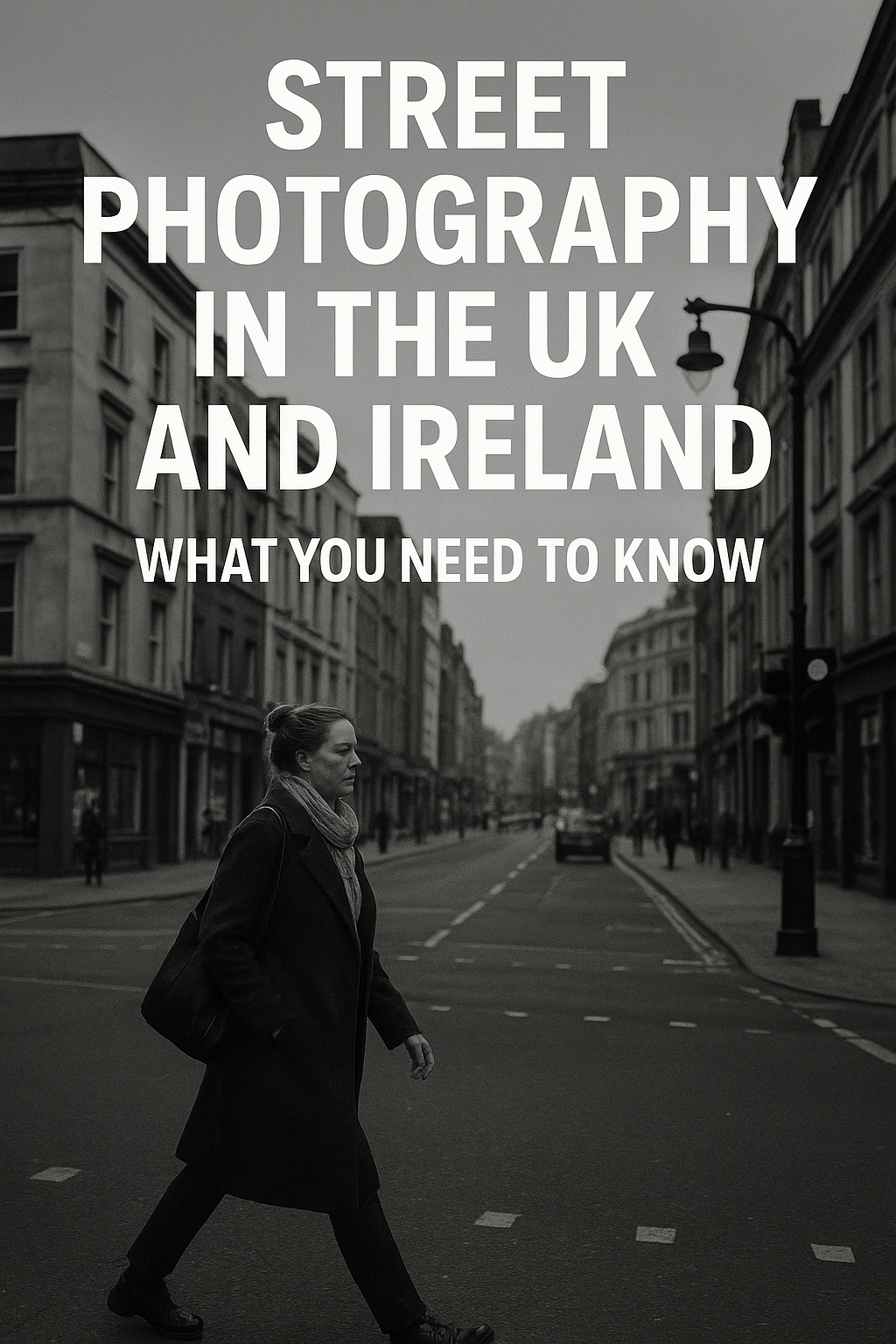Street Photography in the UK and Ireland: What You Need to Know
Street Photography in the UK and Ireland: What You Need to Know
Disclaimer: I am not a legal expert, by any stretch of the imagination. This info is something that I’ve been asked a few times, but also this is a good opportunity for me to write something down for me to refer back to.
The following information is for general guidance only and should not be considered legal advice. Also this id uk based and these guideline will change from country to country.
Street photography is generally legal in the UK and Ireland, provided it is carried out in public places and does not infringe on an individual’s reasonable expectation of privacy. In most situations, photographers are free to take pictures of people in public without asking permission, and there is no legal requirement to blur faces or obtain model releases for non-commercial use.
That said, there are important limitations and considerations:
Sensitive subjects and locations – Photographing police officers, military personnel, airports, or government buildings can sometimes attract unwanted attention or suspicion from authorities. While not strictly illegal in most cases, it may lead to questioning or detention.
Respect and safety – Even where photography is legal, people may feel uncomfortable being photographed. Some individuals may react negatively, so photographers should always be respectful, considerate, and mindful of safety.
Local laws and private property – Rules vary depending on location. For example, shopping centres, transport hubs, and private buildings often prohibit photography without prior permission. Always check and respect local restrictions.
Copyright and intellectual property – While photographs you take are generally your intellectual property, you may need additional permissions for commercial use, particularly if your images include copyrighted artwork, branded logos, or identifiable private property.
FAQs About Street Photography in the UK and Ireland
1. Is it legal to photograph people in public without permission?
Yes. In both the UK and Ireland, you are generally allowed to photograph people in public spaces without asking permission, as long as the images are not defamatory or used in a misleading way.
2. Do I need a model release for street photography?
Not for editorial, personal, or artistic use. However, if you plan to use the images commercially (e.g. advertising), a model release is strongly recommended.
3. Can I photograph children in public?
Legally, yes — photographing children in public spaces is not prohibited. However, this can be sensitive and may attract negative attention. Always act responsibly, respectfully, and avoid situations that could cause concern.
4. Can security stop me taking photos?
Security staff cannot stop you from photographing in a public space, but they can enforce restrictions on private property (like shopping centres, stadiums, or private land). They may ask you to stop or leave if photography is against their rules.
5. Can I post my street photos online?
Yes, but be mindful of privacy, context, and potential reputational harm to the subjects. Posting images online for personal or editorial purposes is generally fine, but avoid defamatory captions or misleading use.
6. Are there restrictions on photographing police or government buildings?
There is no blanket ban, but photographing police, military personnel, or sensitive government buildings may raise suspicion. You may be questioned, searched, or asked to stop under anti-terrorism laws.
In Summary
Street photography in the UK and Ireland is broadly legal, but photographers should act with respect, follow local laws, and be mindful of privacy and safety concerns. Staying informed and considerate helps ensure the creative freedom of street photography can be enjoyed without unnecessary conflict.
